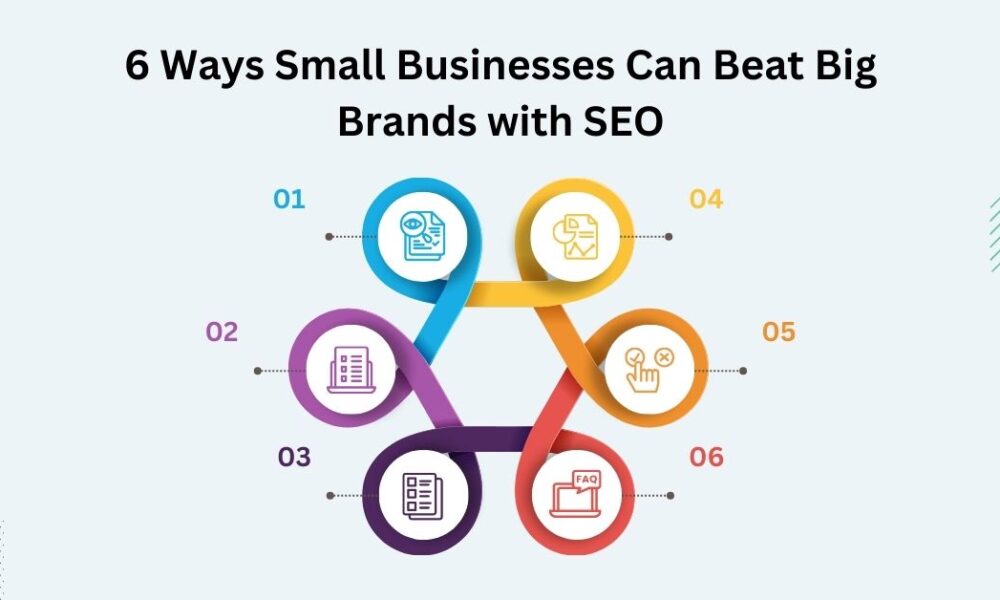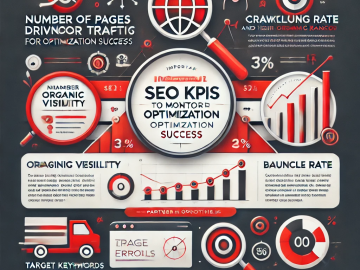Competing against big brands may seem daunting for small businesses, but search engine optimisation (SEO) provides a level playing field. With the right strategies, small businesses can outshine larger competitors in specific areas. This article highlights six effective ways small businesses can use SEO to their advantage.
1. Focusing on Niche Keywords
Big brands often target broad, high-volume keywords, leaving niche keywords with less competition. Small businesses can use this to their advantage by focusing on long-tail and highly specific search terms that resonate with their unique audience.
Why it Works: Niche keywords typically have lower search volumes but higher intent, meaning users searching for them are more likely to convert.
Example: Instead of competing for “Melbourne restaurants,” optimise for phrases like “family-friendly Italian restaurants in Inner West Melbourne.”
Action Plan: Conduct keyword research using tools like Google Keyword Planner or SEMrush. Identify terms relevant to your business that have manageable competition levels. Optimising for these keywords can improve your visibility and attract quality traffic.
2. Leveraging Local SEO Strategies
Local SEO is a powerful tool for small businesses that serve specific areas. By optimising for location-based searches, small businesses can connect with nearby customers.
Why it Works: Many consumers search for local businesses online, and Google prioritises local results for geographically relevant queries.
Example: Claim and optimise your Google Business Profile. Ensure your business information—such as address, phone number, and operating hours—is accurate.
Action Plan: Focus on generating positive reviews, earning local backlinks, and optimising your website’s content with location-based keywords. For expert assistance, consider partnering with an SEO specialist in Melbourne like Fantail Foundation.
3. Providing a Superior User Experience
User experience (UX) is a critical ranking factor that can set small businesses apart. A fast, mobile-friendly, and easy-to-navigate website encourages visitors to stay longer and interact with your content.
Why it Works: Google rewards websites that prioritise user satisfaction with higher rankings.
Example: Simplify your website’s layout, improve loading speeds, and ensure all pages are optimised for mobile devices.
Action Plan: Use tools like Google’s PageSpeed Insights to identify areas for improvement. Regularly update your website to ensure it meets modern UX standards.
4. Building Trust with Consistent Content
Publishing high-quality, relevant content establishes authority and trust, which are essential for SEO success. Consistent blogging, sharing case studies, and creating useful guides can position your business as an industry leader.
Why it Works: Content marketing not only boosts rankings but also fosters customer trust and loyalty.
Example: If you own a pet grooming business, create blog posts about “Top 5 Grooming Tips for Small Dog Breeds.”
Action Plan: Develop a content calendar to publish articles regularly. Incorporate relevant keywords naturally, and optimise each post with meta descriptions and header tags. For more strategies, explore SEO Audit and Analysis in Consultation Services.
5. Using Faster, Agile Marketing Strategies
Unlike big brands, small businesses can adapt quickly to changing market trends. This agility allows them to capitalise on emerging opportunities faster.
Why it Works: Timely content and campaigns can attract attention and capture demand before larger competitors react.
Example: Create a blog or social media post addressing a trending topic within your niche, such as seasonal promotions or local events.
Action Plan: Monitor industry trends using tools like Google Trends or social media insights. Develop a system for creating and publishing timely content that addresses current customer needs.
6. Partnering with Affordable SEO Experts
Working with a specialised SEO partner ensures small businesses receive tailored strategies without overspending. Affordable SEO experts understand the unique needs of small businesses and focus on delivering measurable results.
Why it Works: An experienced SEO provider can maximise your budget and implement data-driven strategies that align with your business goals.
Example: Fantail Foundation, a trusted name in Melbourne, offers cost-effective solutions to help small businesses succeed.
Action Plan: Research and choose an SEO expert who aligns with your goals. Look for providers with transparent pricing and a proven track record of success.
Final Thoughts
By focusing on these six strategies, small businesses can outperform big brands in targeted areas. From leveraging local SEO to building trust through consistent content, the right approach can drive significant results.
Read More From Techbullion






